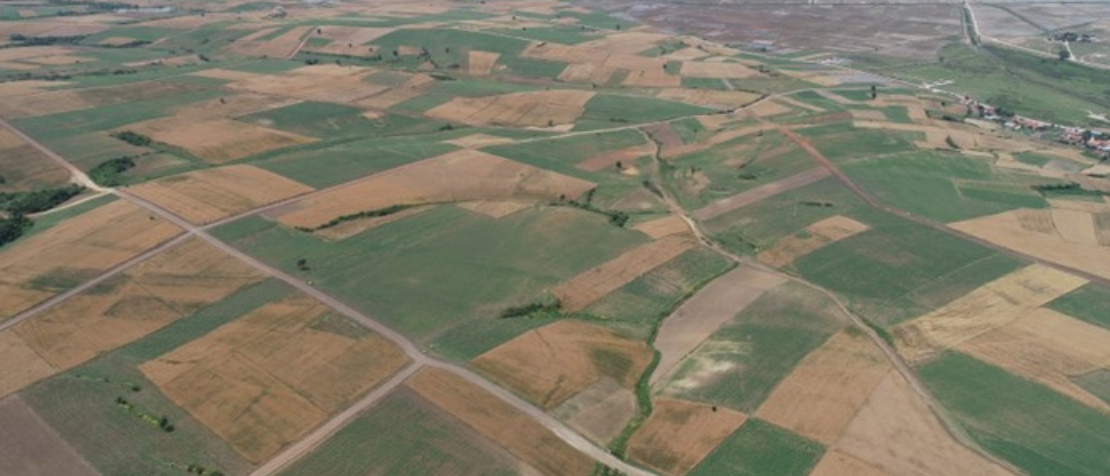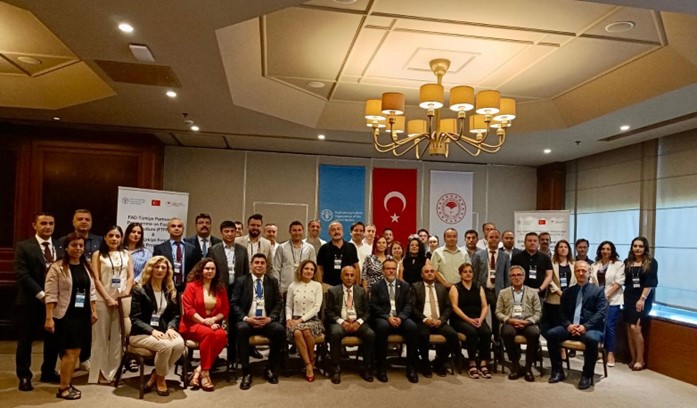FAO land banking and land consolidation project in Türkiye leaves a rich legacy

©State Hydraulic Works of Türkiye
Ensuring global food security and sustainable agricultural development hinges on the efficient use of land resources, including the strategic implementation of land banking initiatives. This critical link was underscored at the closing event of the project “Enhancing agricultural land market development to address land abandonment and improve land consolidation procedures”, implemented under the umbrella of the FAO–Türkiye Partnership Programmes. The project, benefiting Türkiye, Azerbaijan and Uzbekistan, aims to strengthen institutional capacity, improve land management practices, and address land abandonment through lease facilitation and to provide policy recommendations on land consolidation and land banking in these countries.
The closing event in Ankara included a final training seminar held on 8 July, entitled “Addressing land abandonment based on insights and experiences from the third pilot in Nevşehir-Uçhisar”, and a two-day workshop on 9 and 10 July 2025. These events brought together participants from relevant institutions in the beneficiary countries and FAO offices, fostering crucial dialogue and knowledge exchange.
The closing meeting commenced with insightful opening remarks. Sinan Demirbaş, Head of the Land Consolidation and On-Farm Development Services Department at the General Directorate of State Hydraulic Works, on behalf of the Ministry of Agriculture and Forestry in Türkiye, emphasized the collaborative and productive nature of the project. He highlighted Türkiye’s significant progress in land consolidation and noted the country’s vast potential for integrating land banking into the land consolidation process. Demirbaş also stressed the importance of cooperation with relevant institutions and FAO in overcoming challenges to accelerate and enhance the effectiveness of land consolidation efforts.
Oybek Soatov from the Ministry of Agriculture of Uzbekistan and Firidun Taghiyev from the Ministry of Agriculture of Azerbaijan presented their respective countries’ approaches to agricultural land management and land consolidation, outlining the concrete steps taken and the project’s important contributions in this direction.
Morten Hartvigsen, FAO Land Tenure Officer and the project’s Lead Technical Officer, linked efficient land use directly to food security. “It’s all about more efficient land and water management”, he explained, emphasizing the deep connection between these two areas and the need for greater collaboration among authorities. Hartvigsen highlighted the increasing water scarcity due to climate change – particularly in the project countries – and the crucial role of efficient water use in sustaining future farming and food production. He also underscored the return of food security to the international agenda, stressing the need to ensure the capacity to feed growing populations through integrated land and water management. He concluded by calling for increased collaboration across institutions, sectors and stakeholders, citing the project as a practical example. He also noted that land consolidation projects with connected investments in modern irrigation simultaneously hold great potential to contribute to agricultural development and climate change adaptation.
Following the opening remarks, Aylin Çelik, Project Coordinator and FAO Senior Land Management Advisor, provided an overview of the project’s background, country-specific challenges, activities and concrete achievements in the three beneficiary countries. Participants then engaged in discussions on beneficiary country-specific reports concerning land banking and land consolidation, further exploring the provided policy recommendations.

© FAO/Melek Erdoğan
The project, set to conclude at the end of July 2025, leaves behind a rich legacy of technical support, tailored policy recommendations and actionable strategies to advance land banking, land consolidation and land market development in the three countries. With detailed assessments conducted in Türkiye, as well as in Azerbaijan and Uzbekistan, the project has laid the foundation for continued collaboration, institutional strengthening and sustainable rural transformation across the region.
